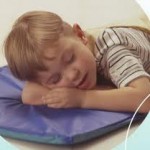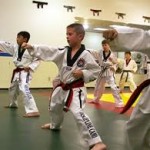Attention deficit hyperactivity disorder or ADHD is developmental illness which affects the children of about three to four percent worldwide. It is a chronic condition that has an effect on millions of children and frequently continues into adulthood. ADHD is characterized by having difficulty in maintaining attention, hyperactivity and impulsive behavior. The symptoms of ADHD can be detected in children in as early as before seven years of age. Children affected with ADHD may have low self-confidence, having troubled in dealings and even with poor performance in school. A treatment applied for ADHD won’t actually cure it but can be a great help to make an immense distinction to live a normal life.
What are the causes of ADHD?
Parents may sometimes feel guilt when their child is being detected with ADHD. The causes of ADHD are possibly to do with the hereditary characters and environmental aspects that may aggravate the behavior of a child. The following are some of the factors causing ADHD.
- The first one is changed brain function and structure. There are studies discovered that there is a variation in the structure and activity of the brain with the people affected with ADHD. They found out that the part of the brain that manage the activity level and attention have a fewer activity than in people with no ADHD.
- The second factor is hereditary. ADHD has a tendency to run in the families. A number of genes may be connected with ADHD are presently being considered.
- The third one is smoking, use of drugs and alcohol and contact to environmental toxins during pregnancy. Women, who smoke, drink alcohol and abuse drugs during pregnancy may have a greater possibility that their children be affected with ADHD. Pregnant women who drink alcohol or abuse drugs may decrease the activities of the nerve cells that generate neurotransmitters. Pregnant women that are being exposed to environmental toxins have also a possibility to have children with ADHD.
- The fourth factor is the exposure to environmental poisons during childhood. Preschool children that are being exposed to environmental poisons are also at the great danger in developmental and behavioral difficulties. Children exposed to toxin specifically lead that can be found in paint can be associated to disorderly and aggressive behavior.
- The fifth one is the food preservatives. The food preservatives or additives being added to the food may bring effect to hyperactive behavior of the child. Even though many people believe that sugar may cause hyperactivity still there is no consistent evidence about it.
What are the signs and symptoms of ADHD?
ADHD describes the combination of inattention and hyperactive-impulsive behavior. Some of the signs and symptoms of ADHD are the following.
- Children are being inattentive to the detail instructed to them or make thoughtless mistakes in school activities.
- They find it difficult to maintain their attention when playing or doing some tasks.
- They appear of not listening even when spoken to straightforwardly.
- They have difficulty in following instructions and frequently fail to accomplish school activities.
- They often tend to loose important school items like books, pencils and others.
- They can be easily distracted and they frequently inclined to forget things.
- They frequently move around and feel uneasy.
- They frequently run or climb terribly even if it is not appropriate.
- They often found difficult in playing quietly.
- They exclaim out the answers prior to the question have been finally asked and they talk extremely.
- They frequently disrupt others’ conversations or discussions.
What are the natural ways to cure ADHD?
Every child with ADHD is differs from each other. The following are some of the ways that can do a big help in helping ADHD child to be one of the normal children.
1.    A lot of affection.
 Let the children feel that they are being loved and treasured. Don’t give much attention to his or her negative characteristics for it will only lessen his or her self-esteem. Show him or her affection regularly through a smile or a hug, a sign of flattering remark.
Let the children feel that they are being loved and treasured. Don’t give much attention to his or her negative characteristics for it will only lessen his or her self-esteem. Show him or her affection regularly through a smile or a hug, a sign of flattering remark.
2.    A lot of patience.
 Stay to be patient and calm while dealing with your child even he or she is already beyond in control.
Stay to be patient and calm while dealing with your child even he or she is already beyond in control.
 3.    Spending time with your child.
 Always find ways to spend quality time with your child together, just the both of you. This is the time that you can more accept and appreciate your child’s individuality. Always give your child in each day a positive attention rather than a negative one.
Always find ways to spend quality time with your child together, just the both of you. This is the time that you can more accept and appreciate your child’s individuality. Always give your child in each day a positive attention rather than a negative one.
4.    Maintain a regular schedule.
 Always mark in a calendar of an upcoming particular event because children with ADHD find it difficult to recognize sudden changes. Evade unexpected transitions from one activity to another.
Always mark in a calendar of an upcoming particular event because children with ADHD find it difficult to recognize sudden changes. Evade unexpected transitions from one activity to another.
5.    Have your child a rest.
 Don’t let your child get exhausted because fatigue can also worsen the symptoms of ADHD.
Don’t let your child get exhausted because fatigue can also worsen the symptoms of ADHD.
6.    Recognize the complicated situations.
 Try to evade from situations that your child find it hard like shopping in the malls or groceries or even watching a long movies or presentation.
Try to evade from situations that your child find it hard like shopping in the malls or groceries or even watching a long movies or presentation.
7.    Make use of timeout in disciplining your child.
 The timeout in disciplining your child should be only in a shot time but long enough to recover control for the child. The reason behind of this is to suspend and calm down the out-of-control behavior of your child. Most of the parents considered this as one of the great way in managing their child with a hyperactive behavior.
The timeout in disciplining your child should be only in a shot time but long enough to recover control for the child. The reason behind of this is to suspend and calm down the out-of-control behavior of your child. Most of the parents considered this as one of the great way in managing their child with a hyperactive behavior.
8.    Develop your child’s self-confidence.
 Help your child know his or her interests where he or she can be excel. Â Most children with ADHD are doing very well with music or dance lessons, art activities or martial arts like tae kwondo or karate.
Help your child know his or her interests where he or she can be excel. Â Most children with ADHD are doing very well with music or dance lessons, art activities or martial arts like tae kwondo or karate.
9.    Make use of simple words.
 Talk to your child in a slow and calmly voice. Be very precise and concrete in giving direction.  Make sure to have an eye contact to your child when giving direction and have one at a time.
Talk to your child in a slow and calmly voice. Be very precise and concrete in giving direction.  Make sure to have an eye contact to your child when giving direction and have one at a time.
10. Take a rest.
 Make sure to have a rest or break for yourself. A fatigued and stressed out parent may not be able to effectively manage or deal with his or child with ADHD.
Make sure to have a rest or break for yourself. A fatigued and stressed out parent may not be able to effectively manage or deal with his or child with ADHD.
Â
